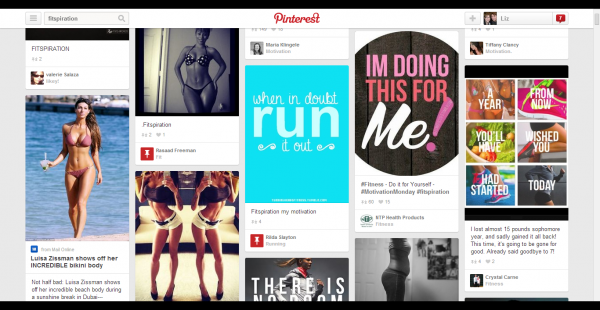It used to be that eating disorders were just about being thinner than everyone else. But that’s no longer the case. Now you have to be stronger, fitter, and healthier than everyone else too. Since this week is National Eating Disorder Awareness Week (February 24-March 1) it seems like the perfect time to talk about the new ways disordered eating is surfacing.
Though not an officially recognized eating disorder, there is a growing trend in orthorexia or an obsession with health. Many people, especially teenagers, associate health with the number on the scale or how they look in the mirror. Both of those can be good baseline for determining health, but there’s a lot more to it than how big your thighs are.
The obsession on health can lead people to questionable products and practices like spending many hours at the gym every day to get that perfect physique, or following an extremely restrictive, albeit “healthy” diet.
Don’t misunderstand; we’re all for exercise and healthy eating. However, some are taking the idea of a healthy lifestyle to an extreme.
If you log in to Pinterest and search the terms “fitsperation” or “fitspo” your computer screen will fill with images of thin women with perfect behinds and abs for days. You’ll see numerous pins of quotes, some inspirational, some insulting. But you’ll mostly find pictures of impossibly thin, yet somehow still toned, women in bikinis. Lots of bikinis. Personally, I’m not sure what a two-piece swimsuit has to do with health and fitness, but perhaps I’m missing the point.
Because sites like Pinterest are full of images promoting how health looks, but not how it feels, people are becoming obsessed with looking healthy and doing whatever it takes to fit the image.
On the one hand, fitsperation can be exactly what you need to get a healthy lifestyle going. On the other, it can trigger destructive behaviors in some as they try to make their bodies look like the ones they see on the screen.
Teens especially are susceptible to behaviors like excessive exercising and/or extremely restrictive diets. This differs from the food restriction seen in other eating disorders in that not all food is the enemy, just the foods deemed “unhealthy.”
Health doesn’t have a signature look. Just because one woman has curvier hips than another doesn’t automatically make her less healthy. A man who has bulging biceps isn’t necessarily healthier than one with less muscle definition.
Everybody and every body is different and our weights and body shapes are going to reflect that.
Also Read:
First Mobile App for Eating Disorder Treatment Now Available from Recovery Record

